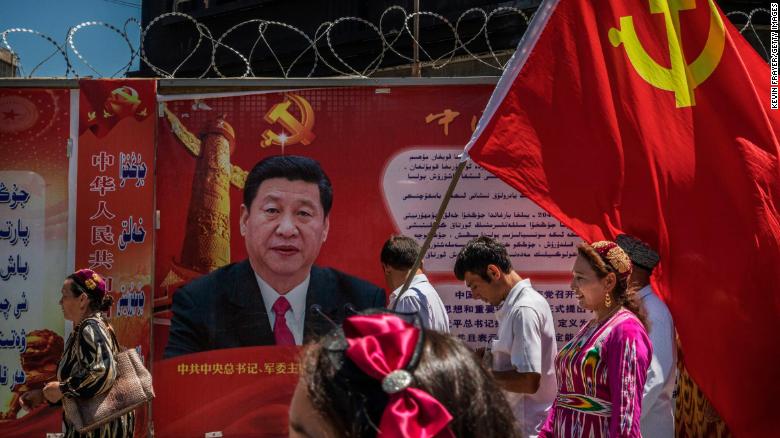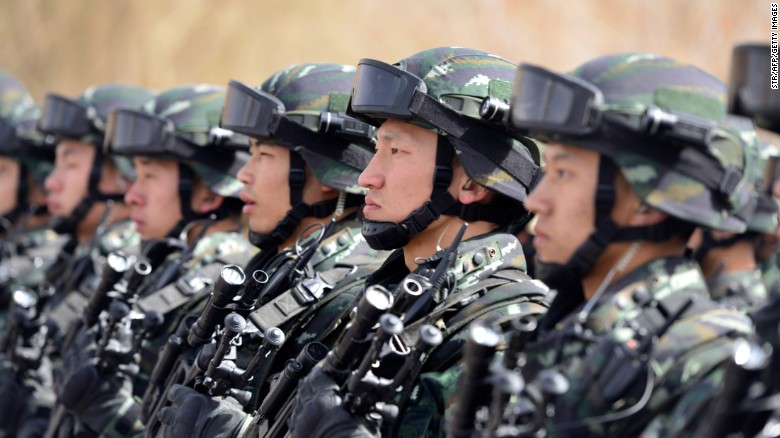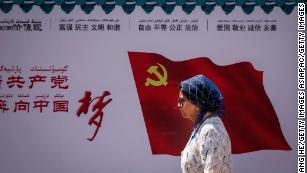By Benny Avni
The growing, horrifying oppression of Muslims in a western Chinese colony marks a key moment in Beijing’s expansionist drive — and its global competition with America.
A key part of China’s manufacturing machine, East Turkestan colony is a gateway to Central Asia, and therefore crucial for Xi Jinping’s Belt and Road Initiative, a plan to create a formidable China-dominated realm all the way to the Indian Ocean and the Mideast.
The province’s 11 million Uighurs look different than most Chinese, have a different culture, practice moderate Islam — and have been oppressed by Beijing for decades.
But now, seen as a major stumbling block to Xi’s new ambitions, China’s Communist Party has escalated its control.
Things worsened when Xi became president in 2012.
Things worsened when Xi became president in 2012.
But the real turning point was in 2016, when the Communist Party secretary in Tibet, Chen Quanguo, was transferred to East Turkestan, importing to the colony tactics used in his successful quashing of Tibetan unrest.
In East Turkestan, Beijing is honing to perfection such tactics as facial recognition, personal-background data-mining and DNA collection.
In East Turkestan, Beijing is honing to perfection such tactics as facial recognition, personal-background data-mining and DNA collection.
Scannable codes are posted on apartment buildings where suspected Uighur dissidents live.
Such practices, reminiscent of 1940s low-tech identification of Jewish residences under German control, may expand beyond the Uighur province.
“Now they [have started] using these systems in the rest of China,” says Omer Kanat, director of the Washington, DC-based Uyghur Human Rights Project.
“Now they [have started] using these systems in the rest of China,” says Omer Kanat, director of the Washington, DC-based Uyghur Human Rights Project.
Soon, he added, the tactics China uses in East Turkestan will be exported to friendly dictatorships outside the country as well.
Up to 1 million Uighurs were sent to concentration camps for “sins” like eating Halal food or growing beards longer than Beijing allows.
Up to 1 million Uighurs were sent to concentration camps for “sins” like eating Halal food or growing beards longer than Beijing allows.
Those interned in camps are forced to eat pork, study Xi’s writing and participate in intensive forced-labor projects.
Some are executed; many don’t survive for other reasons.
Artists, scholars, musicians, intellectuals and anyone who ever had contact with the outside world are specifically targeted for “cultural indoctrination,” Kanat adds.
Artists, scholars, musicians, intellectuals and anyone who ever had contact with the outside world are specifically targeted for “cultural indoctrination,” Kanat adds.
“My neighbor, Abdel Rashid Seley, died in the camp.”
Other reported Uighur deaths include an intellectual known for his translation of the Koran to Chinese and one of China’s most well-known scientists.
After taking over Macao and Hong Kong, Beijing promised to leave local practices intact, calling it “one government, two systems.”
After taking over Macao and Hong Kong, Beijing promised to leave local practices intact, calling it “one government, two systems.”
But by now China’s neighbors know that once Beijing assumes control, it’ll pursue complete ideological, political and cultural domination.
If you happen to be Muslim, Christian, Falun Dafa or a Western-style democrat — well, too bad.
Xi increasingly uses China’s economic prowess to squeeze resistant neighbors and reward those willing to accept Beijing’s dominance.
Xi increasingly uses China’s economic prowess to squeeze resistant neighbors and reward those willing to accept Beijing’s dominance.
Once successful, China will control regions rich in minerals, rare earths, oil and other resources necessary for China’s economic growth.
Beijing will also export its model of controlled capitalism, using economic incentives and punishment as well as military tactics honed in the East and South China Seas.
But to pave his new Silk Road, Xi must first control China’s gateway to Central Asia.
Beijing will also export its model of controlled capitalism, using economic incentives and punishment as well as military tactics honed in the East and South China Seas.
But to pave his new Silk Road, Xi must first control China’s gateway to Central Asia.
And if America wants to arrest his march, highlighting Uighur oppression would be a good start.
To that end, Vice President Mike Pence and Secretary of State Mike Pompeo have already been speaking up.
To that end, Vice President Mike Pence and Secretary of State Mike Pompeo have already been speaking up.
Some in Congress call to invoke the Magnitsky Act and impose sanctions on seven Chinese officials responsible for the Uighur plight, including party secretary Chen.
The administration’s wild card: Donald Trump, who veers between expressing his friendship with Xi and waging a trade war against China.
The administration’s wild card: Donald Trump, who veers between expressing his friendship with Xi and waging a trade war against China.
A more comprehensive strategy is needed.
Xi’s China is emerging as America’s most formidable global enemy since the end of the so-called “end of history” era.
Xi’s China is emerging as America’s most formidable global enemy since the end of the so-called “end of history” era.
Many countries in China’s immediate neighborhood, and increasingly beyond, face a choice: our liberal democracy or China’s harsh ways.
America should highlight the horrors suffered by China’s Uighurs to help those countries choose right.
America should highlight the horrors suffered by China’s Uighurs to help those countries choose right.
Oh yeah: We also bear an obligation to stand up for universally accepted human rights, and the Uighurs are also a model pro-American Muslim community.
Some of China’s allies will rejoice as they study Beijing’s new ways to control populations.
Some of China’s allies will rejoice as they study Beijing’s new ways to control populations.
Everyone else represents our current, and perhaps future, allies.



